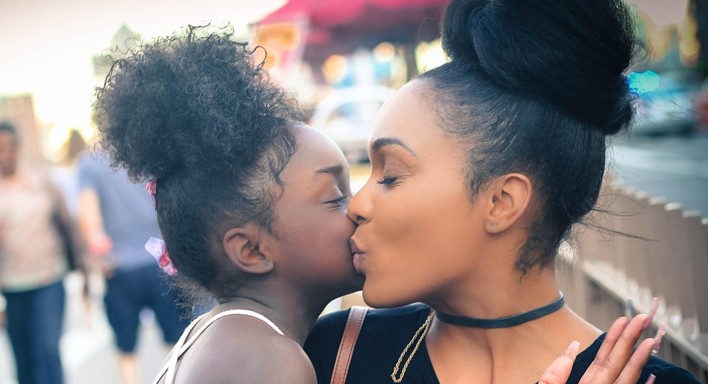We know not to trust brands by now, don’t we? After all, brands are not your friends.
But while the country has been mobilized by renewed Black Lives Matter protests after the murder of George Floyd, it seems every brand from Ben & Jerry’s to LEGO and Nickelodeon have been sharing #BLM messages of support on social media. But isn’t it basic marketing to echo popular opinion in order to ingratiate your company with consumers? Of course it is–so the interesting question more consumers are pondering lately is how (un)ethical basic marketing is.
The New York Timeswriter Tejal Rao questioned all of this performative allyship in her article, “Food Brands Tweet #BlackLivesMatter, but What’s Behind the Words?” Rao recounts, “Popeye’s Chicken stated that the company would use its ‘platform’ to ‘support this movement.’ Wendy’s claimed that its ‘voice would be nothing without Black culture‘ and promised to ‘amplify Black voices’ on Twitter. And Burger King adapted its slogan in a tweet that read, ‘when it comes to people’s lives, there’s only one way to have it. without discrimination.'”
The cringey virtue-signaling of fast food brands is akin to the tone deaf Pepsi commercial that introduced Kendall Jenner to the real world of racial politics. Remember that gem from 2017? Jenner, playing the part of a famous “woke” ally, is gracious enough to step down from her high fashion photoshoot and join a protest which was presumably on the brink of exploding into violent chaos–but then the (white cis) model hands a stern-looking police officer a Pepsi, and everyone dances in the street for…social justice? World peace?
As Rao noted, “It also brushed over the fact, viciously reinforced last week, that protests against police brutality are often met with more police brutality. That regardless of which soda they might be drinking, peaceful protesters in the United States may be subject to tear gas, rubber bullets, batons and worse.”
People Are Outraged By This Pepsi Ad Starring Kendall Jenneryoutu.be
While Pepsi quickly pulled the ad and Jenner apologized, Rao’s point is disturbingly clear: Brands performing allyship with platitudes about “amplifying Black voices” isn’t just tone deaf; it’s insulting.
McDonalds, renowned for abusing its (often underage) employees and violating a wide array of labor laws, tweeted its support of the Black Lives Matter by naming widely publicized Black victims of police brutality and writing, “They were one of us.”
Before giving brands clout, praise, your money, or even recognition for their ability to (under)pay an intern to write a nice tweet, examine the structures and power dynamics at work in that company. McDonalds, for instance, is known to pay their employees unjustly low wages, refuses to recognize their employees’ right to form a union, and has failed to address numerous complaints of sexual harassment and even violence against McDonald’s employees.
While some companies do tout Black Lives Matter slogans and messages of support as a sign of their internal leadership and commitment to creating safer and fairer spaces for people of color, it’s 2020 and a quick Internet search reveals a company’s true values.
But considering the numerous indignant replies to McDonald’s tweet, most people already know that:
string(4867) "
We know not to trust brands by now, don't we? After all, brands are not your friends.
But while the country has been mobilized by renewed Black Lives Matter protests after the murder of George Floyd, it seems every brand from Ben & Jerry's to LEGO and Nickelodeon have been sharing #BLM messages of support on social media. But isn't it basic marketing to echo popular opinion in order to ingratiate your company with consumers? Of course it is–so the interesting question more consumers are pondering lately is how (un)ethical basic marketing is.
The New York Timeswriter Tejal Rao questioned all of this performative allyship in her article, "Food Brands Tweet #BlackLivesMatter, but What's Behind the Words?" Rao recounts, "Popeye's Chicken stated that the company would use its 'platform' to 'support this movement.' Wendy's claimed that its 'voice would be nothing without Black culture' and promised to 'amplify Black voices' on Twitter. And Burger King adapted its slogan in a tweet that read, 'when it comes to people's lives, there's only one way to have it. without discrimination.'"
The cringey virtue-signaling of fast food brands is akin to the tone deaf Pepsi commercial that introduced Kendall Jenner to the real world of racial politics. Remember that gem from 2017? Jenner, playing the part of a famous "woke" ally, is gracious enough to step down from her high fashion photoshoot and join a protest which was presumably on the brink of exploding into violent chaos–but then the (white cis) model hands a stern-looking police officer a Pepsi, and everyone dances in the street for...social justice? World peace?
As Rao noted, "It also brushed over the fact, viciously reinforced last week, that protests against police brutality are often met with more police brutality. That regardless of which soda they might be drinking, peaceful protesters in the United States may be subject to tear gas, rubber bullets, batons and worse."
People Are Outraged By This Pepsi Ad Starring Kendall Jenneryoutu.be
While Pepsi quickly pulled the ad and Jenner apologized, Rao's point is disturbingly clear: Brands performing allyship with platitudes about "amplifying Black voices" isn't just tone deaf; it's insulting.
McDonalds, renowned for abusing its (often underage) employees and violating a wide array of labor laws, tweeted its support of the Black Lives Matter by naming widely publicized Black victims of police brutality and writing, "They were one of us."
Before giving brands clout, praise, your money, or even recognition for their ability to (under)pay an intern to write a nice tweet, examine the structures and power dynamics at work in that company. McDonalds, for instance, is known to pay their employees unjustly low wages, refuses to recognize their employees' right to form a union, and has failed to address numerous complaints of sexual harassment and even violence against McDonald's employees.
While some companies do tout Black Lives Matter slogans and messages of support as a sign of their internal leadership and commitment to creating safer and fairer spaces for people of color, it's 2020 and a quick Internet search reveals a company's true values.
But considering the numerous indignant replies to McDonald's tweet, most people already know that:
"












